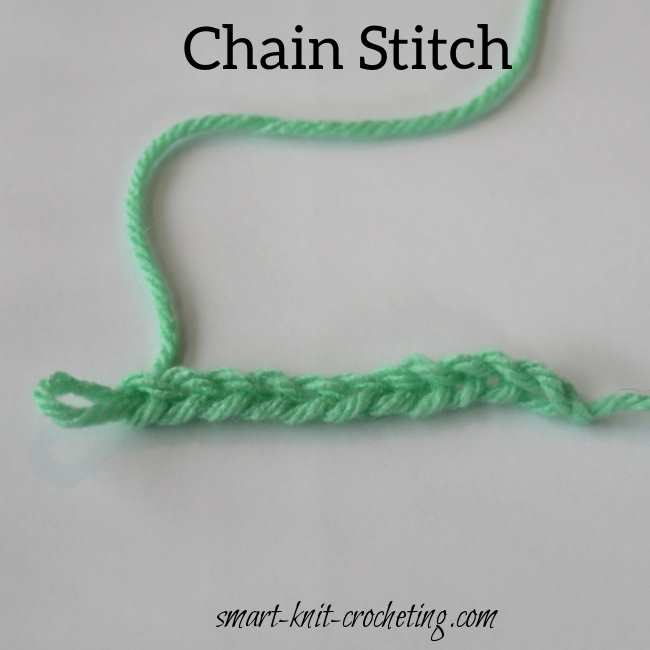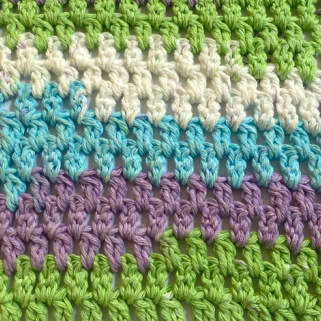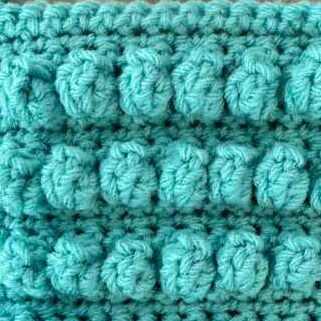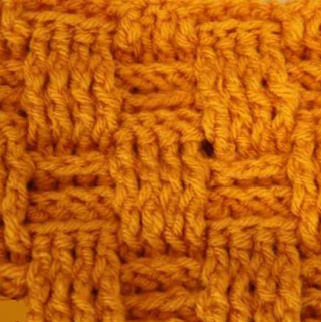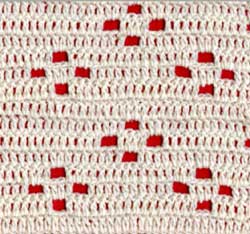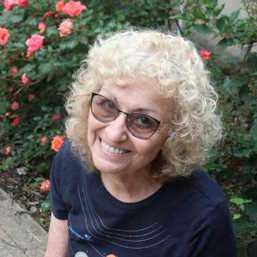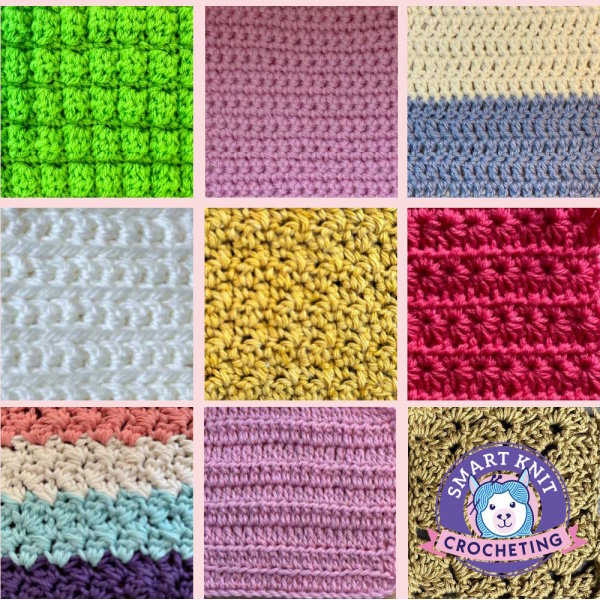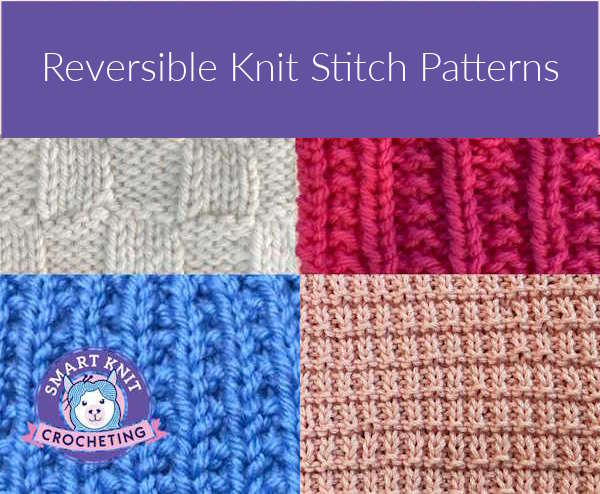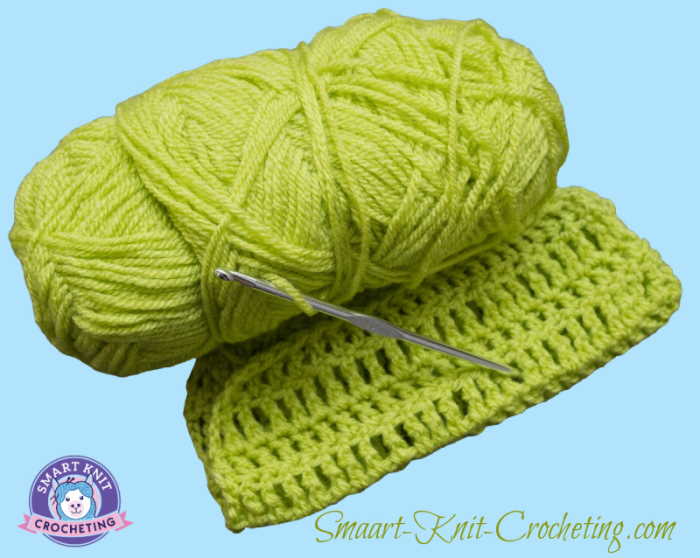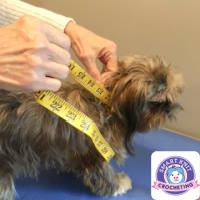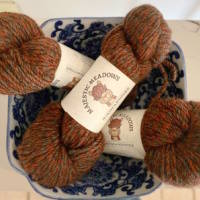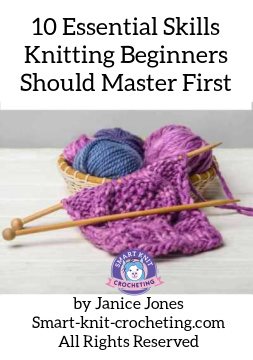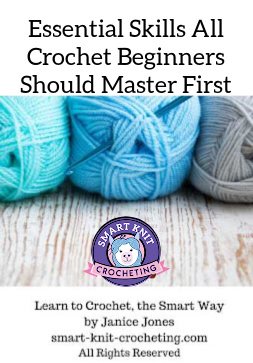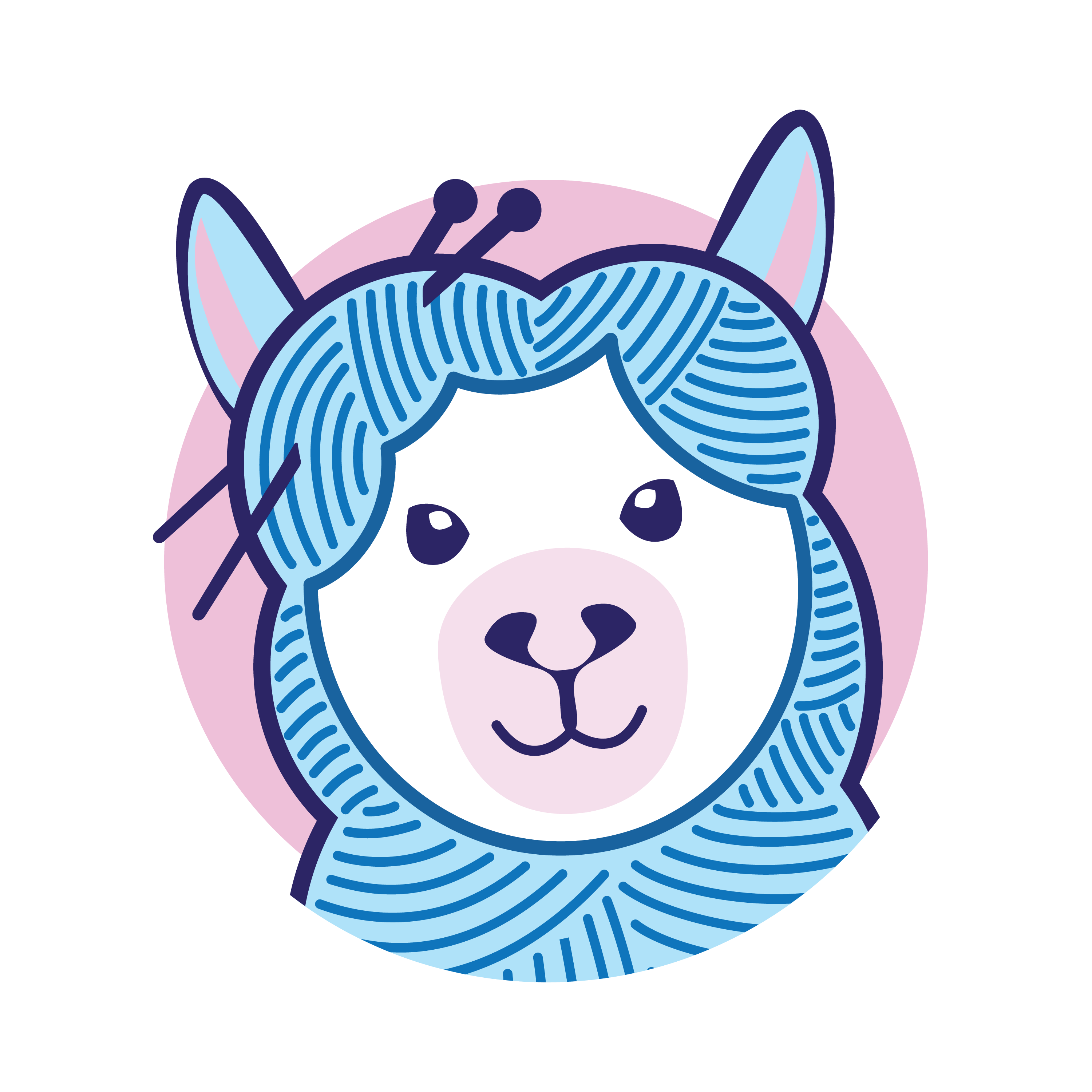- Home
- How to Crochet
- Double Crochet Stitch
How to Make the Double Crochet Stitch
by Janice Jones
The Double crochet stitch is likely the most common if not popular of all crochet stitches. It's easy to make, creates a lovely fabric, and is the most versatile. Just take a look at a crocheted blanket, hat, scarf, or ear warmer, and you'll like to identify the stitch immediately. This stitch is abbreviated as dc, DC or in the UK, it is called treble or tr.
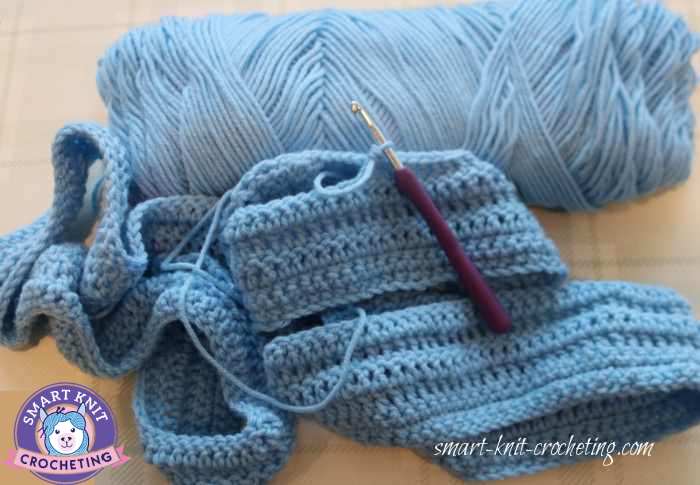 How to Make the Double Crochet Stitch
How to Make the Double Crochet StitchOnce you've mastered all the basic crochet stitches, including the single crochet, half double crochet, double crochet, and treble crochet, you will be well along in your path to being more than a beginner crocheter. That's when all the fun begins because you will be able to create a multitude of gorgeous projects.
How to Crochet the Double Crochet Stitch: Tips for the Beginner
There are different terms used for crochet depending on where you are in the world and if you are reading a pattern written in the U.S. or the UK. This can be confusing for beginners.
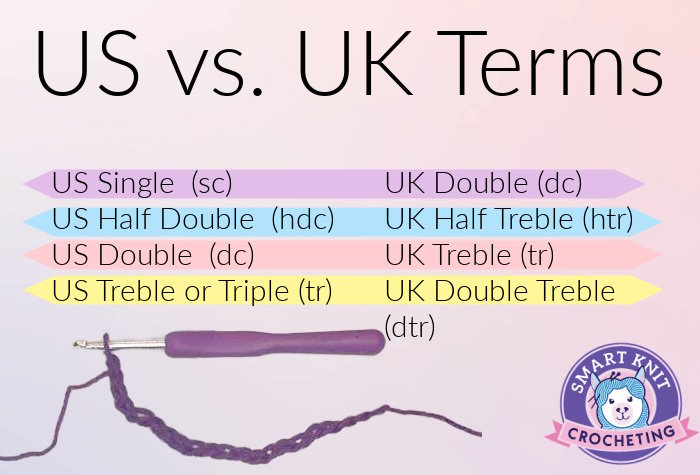 I am in the US, so I write using US terms on this website.
I am in the US, so I write using US terms on this website.Light Colored Yarns
Light-colored yarns work very well for beginners because you can see the individual stitches without needing extra lighting. You don't need to limit yourself to white, but venture out in shades of light pink, blue, orange, green, or purple. Tans and cream colors are also very easy to see.
Types of Yarns
If you haven't figured out all the terminology that goes along with yarn and other crochet threads, become familiar with learning to read yarn labels.
The easiest weights categorize yarns for the first time crocheters is a number 4 worsted weight or a number 5 bulky weight.
Worsted weight yarns are generally less expensive and are perfect for beginners.
Jump to my comprehensive guide to yarns.
Types of Crochet Hooks
By now, you've probably ventured out into a hobby store and found yourself confronted with rows of crochet hooks. Don't be alarmed with all the choices.
While there are many different options when deciding on crochet hooks. When learning to make the double crochet stitch, choose a size 4, 5, or 6 mm.
In US sizes, that would be a G-6, H-8, or J-10. The smaller-sized hooks such as the 4 mm or G-6 work best with the Number 4 worsted weight yarn, whereas if you choose to use the bulky yarn, you will want to select the larger hook.
Jump to Ergonomic Crochet Stitches
Crocheting Basics: Gauge
While these crochet stitch pages are all about learning how to create a stitch, we can't forget that crochet is much more than that.
Gauge is an important concept when you get into sizing a garment or creating a project that should be a certain size. Enjoy these tutorials about crochet stitches, but also read about how to achieve gauge.
Basic Crochet Supplies
It's certainly not my intent to overwhelm you with more information. That is why I created a separate page about the various types of supplies and accessories you might want to think about as your passion for crochet increases.
These crochet accessories and supplies represent a beginning and a wish list for beginners and not meant to imply that they must be purchased immediately.
How To Do A Double Crochet For Beginners: Picture Tutorial
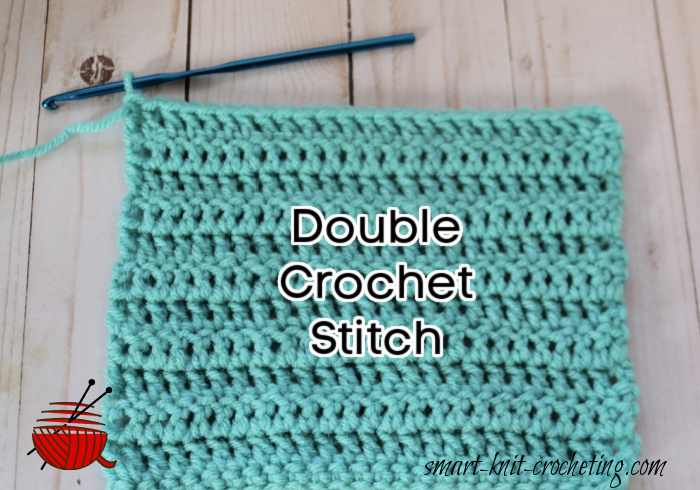
Supplies for a Practice Swatch
- Yarn (I recommend CYC #4 worsted weight yarn)
- Crochet Hook (U.S H, 5.0 mm)
- Scissors
- Yarn needle for weaving in ends. (optional)
Collect your yarn, a pair of scissors, and a crochet hook. We will be making a swatch of fabric that is approximately 4 ½ inches wide, depending on which size hook you use and how loose or tight you crochet.
If you want to make more than a practice swatch, you could continue making row after row to create a scarf. If you prefer a wider scarf, start with more than the 20 chain stitches I recommended below.
For example, to make a 7 ½ inch wide scarf, you will need to chain 28 and work rows of 25 stitches each.
Step-by-Step Instructions for Double Crochet
Step 1: Create a slip knot and make a row of 20 chain stitches.
Step 2: Yarn over and insert your hook into the 4th chain from your hook.
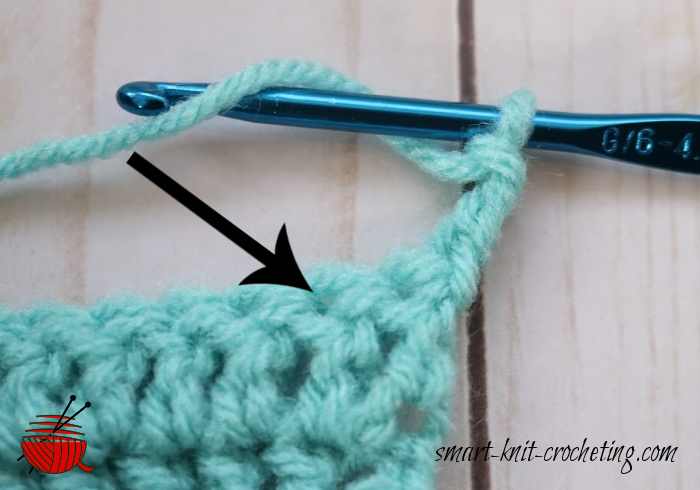 Yarn over, pull up a loop. You will have three loops on your hook.
Yarn over, pull up a loop. You will have three loops on your hook.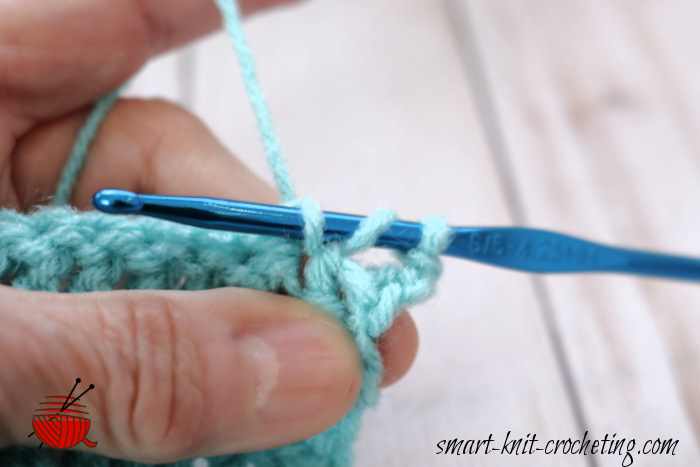 Step 3: Yarn over and pull through two loops.
Step 3: Yarn over and pull through two loops.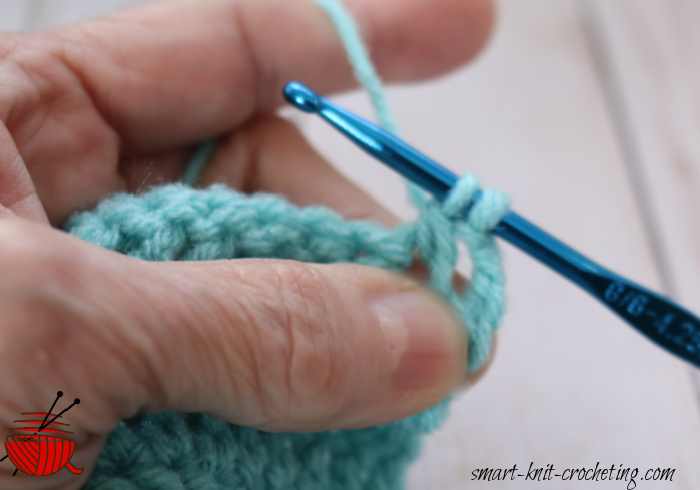 Step 4: Yarn over again and pull through the remaining two loops.
Step 4: Yarn over again and pull through the remaining two loops.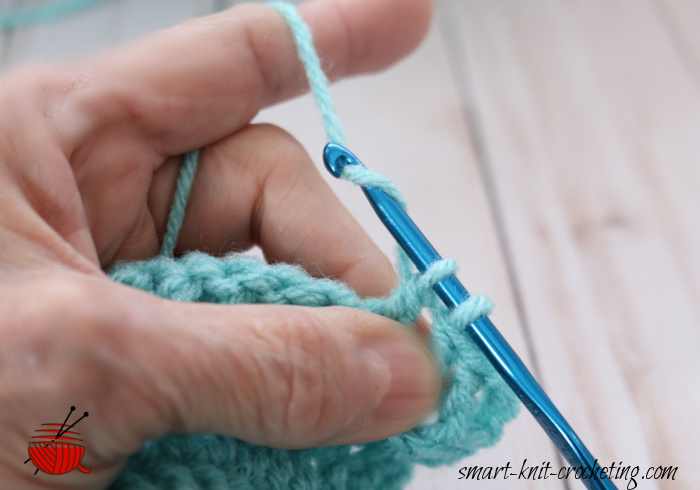 Step 5: Yarn over again and pull through the last two loops on the hook. One loop remains.
Step 5: Yarn over again and pull through the last two loops on the hook. One loop remains.That's it! You've just made the double crochet stitch.
Reread the four-step instructions and make your next stitch.
Continue double crocheting in each chain stitch until you reach the end of the row.
If you began with 20 chain stitches, you should end up with 17 double crochet stitches when you reach the row's end.
Why not 20 stitches, you might ask? Recall that you skipped three chain stitches at the beginning of the row. Those three chains count as one double crochet stitch.
At the end of the row, chain three and turn your work, so the reverse side faces you.
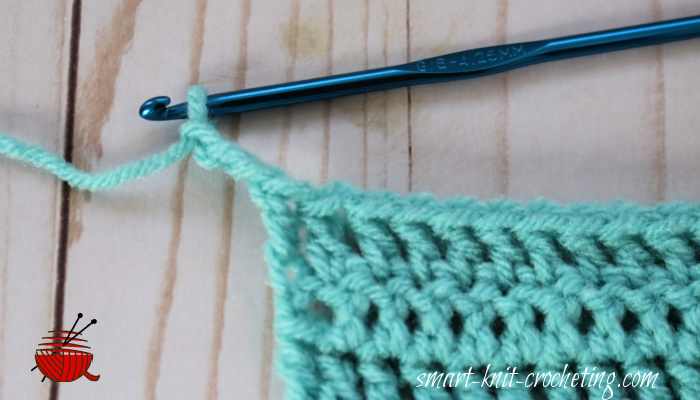 At the end of the row, chain three and turn your work, so the reverse side faces you.
At the end of the row, chain three and turn your work, so the reverse side faces you.Getting Started with the DC stitch: Troubleshooting
When I first started crocheting, the double crochet stitch was the first thing I learned. That was about 50 years ago and at the time I needed to learn the double crochet stitch because I wanted to make a granny stitch afghan.
My stitches were double crochet, but they were ... ugly. I no longer own the original crocheted blanket that I made, but I can tell you that back in the 1970s when I made it, granny squares looked a bit different. We used solid or varigated yarn to make the entire square and then created a black border around them.
Anyway, it took a bit of practice to make them look good. I think my "aha" moment came when I realized that tensioning my yarn around my hands made all the difference. Here are a few other things I learned.
Tight Chain Stitches: If you make your initial chains very tightly, getting the hook into a chain stitch to create a double will be physically hard.
Wrapping the Yarn Over the Hook: Yarn over verses Yarn Over: If you don't wrap your yarn properly, you'll end up with a twisted stitch.
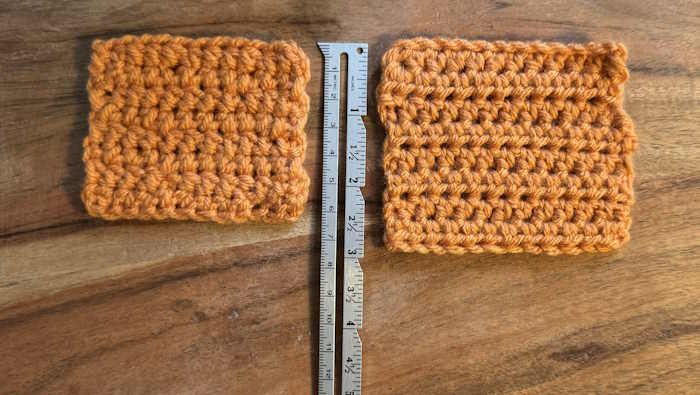 The swatch on the left shows what a yarn over would look like, and the one on the right shows the standard yarn over.
The swatch on the left shows what a yarn over would look like, and the one on the right shows the standard yarn over.Where to place the first double crochet: There are many ways to do this:
- Insert the hook into the bump on the wrong side
- Insert the hook into one or both loops on the right side
If the pattern does not tell you where to put it, try inserting your hook under the top loop of the chain stitch.
Turning Chain Confusion: The number of chains you make before beginning your row of double crochet is 3. At the beginning of each row, the turning chain is created to reach the height of the crochet stitch you are creating.
In most cases, the turning chain counts as a stitch unless the pattern indicates otherwise.
I personally make two turning chains when making the double crochet stitch. It makes for a cleaner, straighter edge.
Confusion over how to start the second row: Your goal is to keep the same number of double crochet stitches in each row. There are two ways to do this:
- Insert your hook into the top of the first double crochet stitch and finish the row by inserting your hook into the top of the turning chain.
- Insert your hook into the base of the turning chain and make your last stitch into the last double crochet stitch
Confusion on counting stitches: You can either count the little v's that you see at the top of the last row, or count the posts. Rows of double crochet stitches are also easy to see especially if you count your rows on the right side of the fabric.
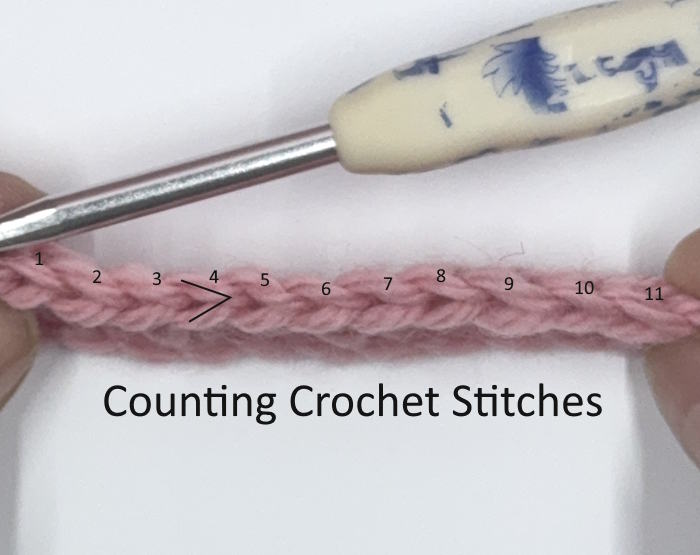 Count each stitch at the top of your work that looks like a little V.
Count each stitch at the top of your work that looks like a little V.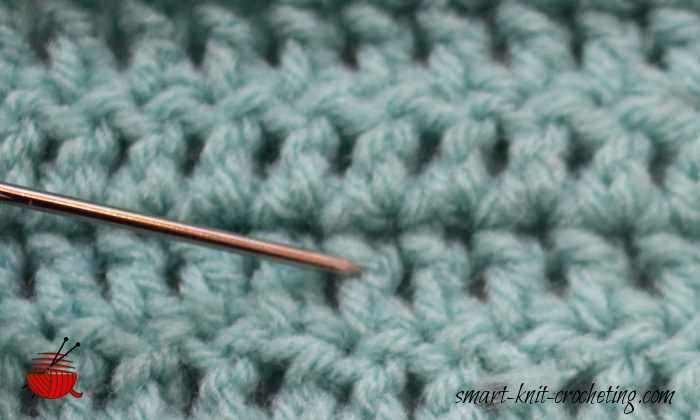 Count each post as one double crochet stitch.
Count each post as one double crochet stitch.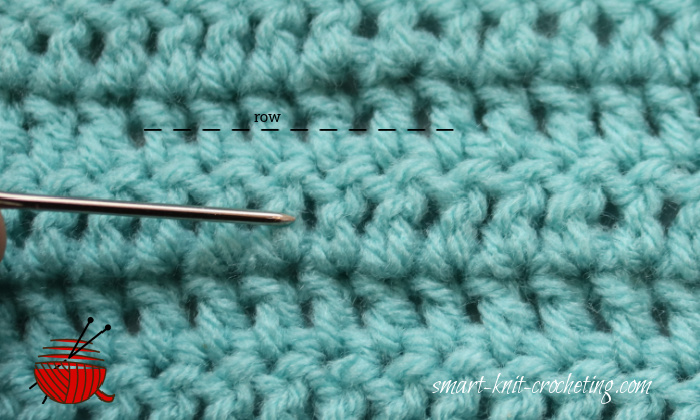 Rows of double crochet stitches are also easy to see especially if you count your rows on the right side of the fabric.
Rows of double crochet stitches are also easy to see especially if you count your rows on the right side of the fabric.What Can You Do With a Double Crochet Stitch?
The double crochet stitch is one of the basic stitches beginners learn but there are many different things you can do with it.
Many crochet stitch patterns are made up of different types of stitches. Some only require variations of Double Crochet Stitches. Here are a few examples.
Project Ideas for Beginning Crocheters
Frequently Asked Questions (FAQ) – Double Crochet Stitch
What is a double crochet stitch?
What is a double crochet stitch?
A double crochet (dc) is one of the tallest and most versatile basic stitches in crochet. It creates a looser, more flexible fabric than single crochet, making it ideal for scarves, blankets, and clothing.
Is double crochet the same in US and UK patterns?
Is double crochet the same in US and UK patterns?
No. In US crochet, this stitch is called “double crochet.”
In UK crochet, the same stitch is called a “treble crochet.”
👉 Always check the pattern’s terminology before starting!
How many chains do I need to start a row of double crochet?
How many chains do I need to start a row of double crochet?
You'll typically chain 3 extra stitches at the start of a row. These serve as the “turning chain” and count as your first dc.
🧮 Example: For 10 stitches, chain 13 (10 + 3).
What’s the difference between single and double crochet?
What’s the difference between single and double crochet?
Single crochet (sc) = shorter, tighter stitch
Double crochet (dc) = taller, looser stitch
With dc, you yarn over before inserting the hook, which adds height.
Free PDF Download: How to Double Crochet
Download this double crochet tutorial as a printable PDF
Double Crochet Stitch: Pin for Future Reference
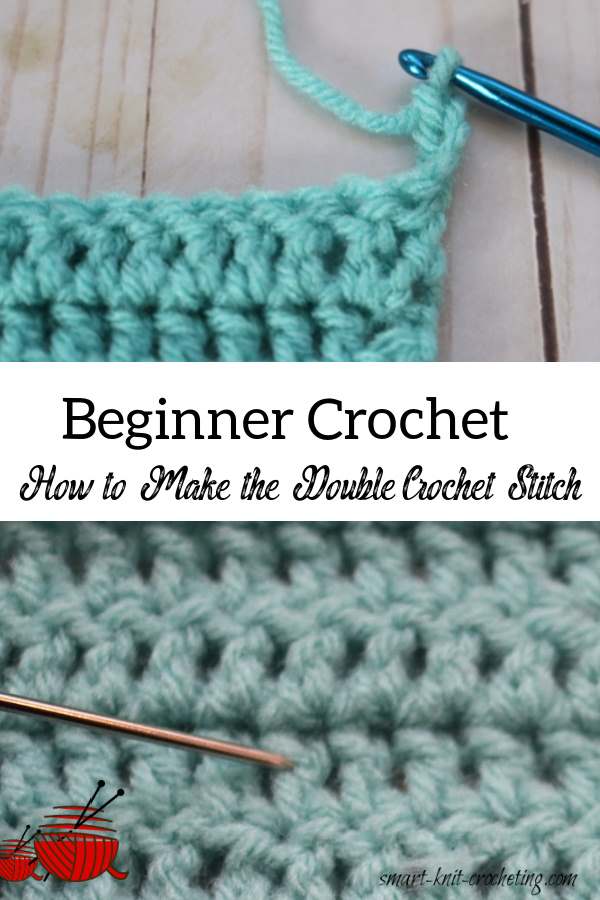
What can you make with the double crochet stitch?
I thought you'd never ask. There are so many projects you can begin right now even if you don't even know how to read a crochet pattern.
